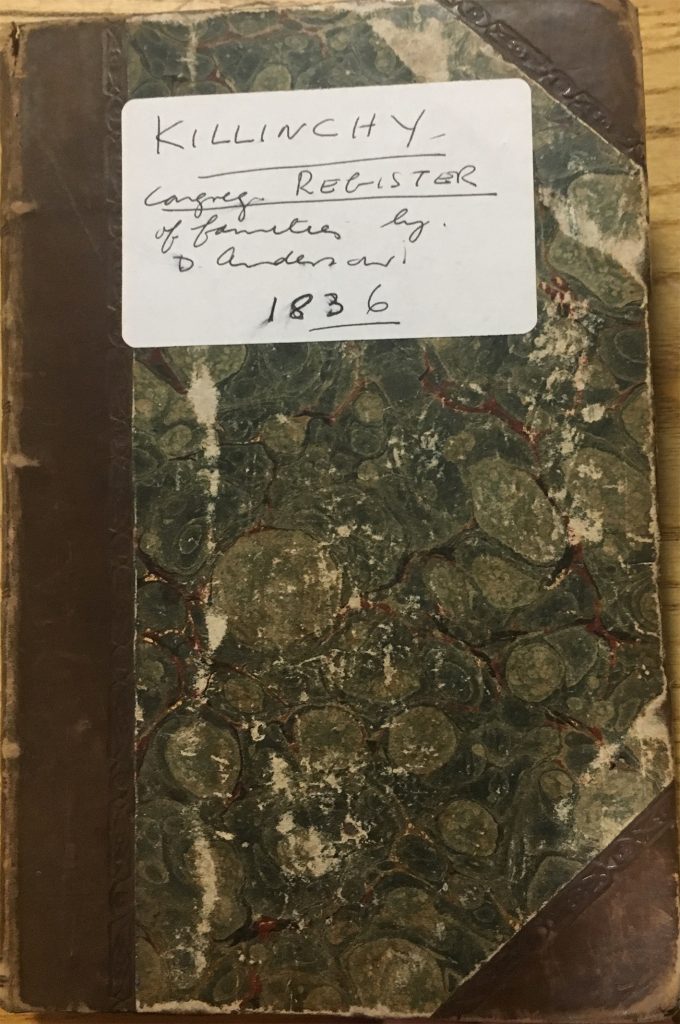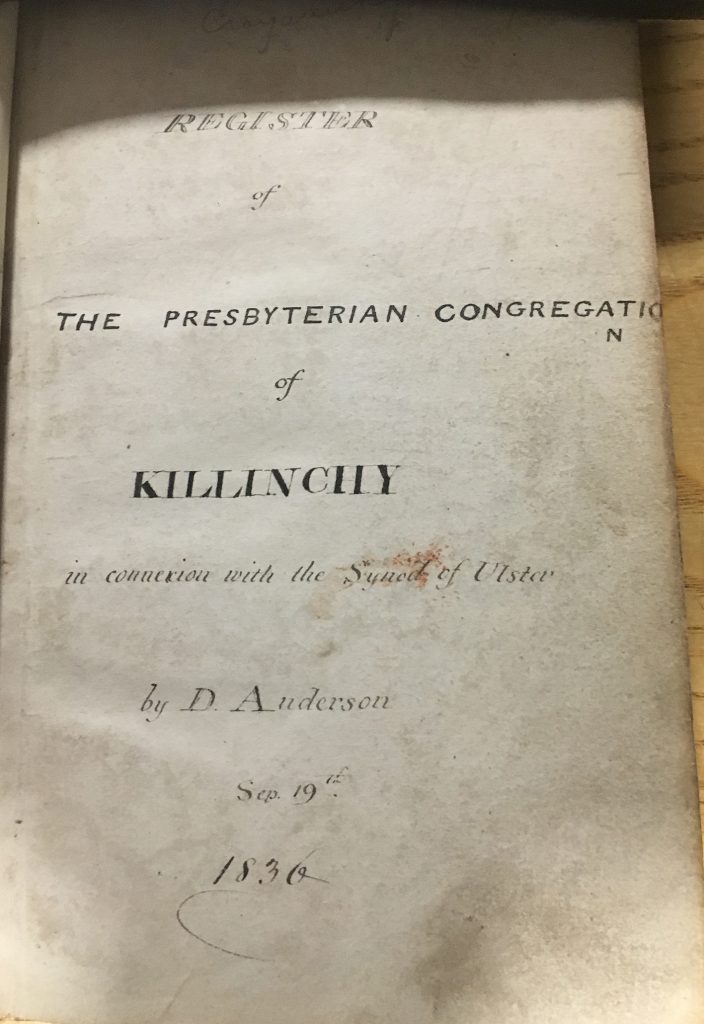We are often bombarded with advertisements for subscriptions to online genealogy services like Ancestry and Find My Past. These are wonderful programs and provide a wealth of information but as the old adage goes, Not everything is online. This was demonstrated to me quite recently. For 12 months, I have been helping two sisters try to find the birth or baptism date for their great grandfather who had emigrated to Australia in the early 1900s from Northern Ireland. There was no headstone for him in the local cemetery and they wanted to provide one which had the salient details about his life. We had searched Ancestry, FamilySearch, Find My Past and numerous other sites looking for his birth or baptism information in Ireland. These searches did reveal previously unknown details – his marriage date, the birth dates for his children and so on. However, it wasn’t until a distant relative provided a copy of a page in a family Bible that important clues were found. These pages were letters of recommendation provided by a local Presbyterian minister to Samuel and a woman (presumably his mother) as they were moving to another locality. The interesting thing about the letters was that Samuel had a different surname to that of his mother so we investigated further.
Samuel’s wedding certificate was purchased which showed that his father had the same surname as that on Samuel’s letter of recommendation. Knowing the name of the Presbyterian church, an email was then sent to the Presbyterian Historical Society in Belfast asking for a search to be made of the parish registers. However, another brick wall was hit as nothing was found.
It was decided that while I was doing my own research in Belfast at the Public Record Office of Northern Ireland (PRONI), I would visit the Presbyterian Historical Society to seek advice on where we could go from here. While I was there, a search was done on the digital index to the registers and, as previously advised, no relevant names were found. However, the librarian decided to show me the original 1836 register of Presbyterian families in the district – a small book with fading ink.


You guessed it!
In this book, the minister had written down the names of all families in the parish at the time – their townland, the children’s names and their ages and, in some instances, had even pencilled in whom they had married. In Samuel’s case, there it was in black and white. Against his father’s name (he lived in another townland), was the name of his mother. Written next to his mother’s name was Samuel’s name. Further searches showed that Samuel was illegitimate but his mother had obviously continued to worship at the local church, only moving to another parish when Samuel married. The most wonderful aspect of this find was that the parents of both Samuel’s parents were recorded (as well as their siblings) so the research could now be taken back another generation.
Most importantly, two sisters can now erect a headstone for their great grandfather.

What an amazing piece of detective work you did in Ireland.
Your research skills are second to none, and your knowledge of how and where to search is phenomenal … the result of years of experience that is totally beyond the scope of new recruits to genealogy, like ourselves.
The head stone could not have been erected without your tenacity and tireless researching.
We will be highly recommending your website and research skills to our friends who are now becoming interested in family history after hearing our story.
Your cheerful enthusiasm and endless patience with newbies is an added bonus which we gratefully acknowledge. Many heartfelt thanks from ‘the two sisters’ (Tricia and Alison).